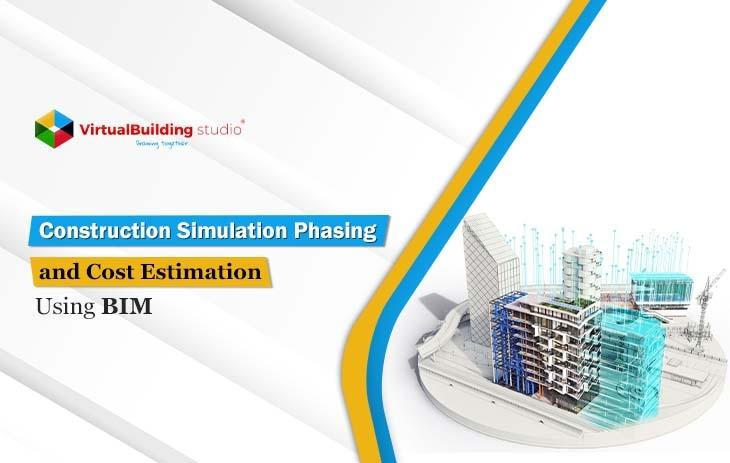In the rapidly evolving field of construction project management, the integration of Artificial Intelligence (AI) and Building Information Modeling (BIM) has revolutionized the way costs are simulated and managed. This cutting-edge technology allows construction professionals to accurately predict and optimize project budgets, timelines, and resource allocation. In this article, we will explore the intersection of AI and BIM in construction cost simulation, showcasing how these advanced tools are reshaping the industry and empowering project managers to make more informed decisions.
– Leveraging AI for Accurate Cost Estimation in Construction Projects
Artificial Intelligence (AI) and Building Information Modeling (BIM) have revolutionized the construction industry by enabling more accurate cost estimation for projects. By leveraging AI algorithms and BIM data, project managers can simulate various cost scenarios to make informed decisions that align with the project budget and timeline. This advanced technology helps in optimizing resources, reducing waste, and improving overall project delivery.
With AI and BIM, construction cost estimation becomes more reliable and efficient. By analyzing historical data, real-time project updates, and predictive analytics, project managers can forecast potential cost overruns and identify areas for cost savings. The integration of AI into cost estimation not only enhances accuracy but also increases productivity by automating repetitive tasks and allowing project teams to focus on strategic decision-making. Ultimately, AI and BIM empower project managers to deliver construction projects on time and within budget, ensuring successful outcomes for all stakeholders involved.
– Integrating BIM Data for Enhanced Simulation Accuracy
Utilizing Building Information Modeling (BIM) data in construction cost simulation is crucial for achieving enhanced accuracy in project management. By integrating Artificial Intelligence (AI) algorithms with BIM data, project managers can analyze various factors that affect construction costs more efficiently and effectively. AI can identify patterns and trends within the data to make more accurate predictions, leading to better decision-making and cost optimization.
With the use of AI and BIM data, project managers can simulate different scenarios and evaluate their impact on construction costs. This allows for informed decision-making based on data-driven insights, leading to more precise cost estimates and budget planning. By leveraging AI technology, project managers can streamline the construction process, reduce uncertainties, and improve overall project outcomes.

– Implementing Machine Learning Models for Real-Time Cost Optimization
By leveraging the power of Artificial Intelligence (AI) and Building Information Modeling (BIM), construction companies can now simulate and optimize costs in real-time like never before. Implementing machine learning models for cost optimization allows project managers to make data-driven decisions that lead to more efficient allocation of resources, reduced waste, and ultimately, cost savings.
With AI-based cost optimization, construction projects can benefit from predictive analytics that forecast potential cost overruns, identify areas for cost reduction, and optimize scheduling to minimize expenses. By integrating machine learning algorithms into project management systems, companies can achieve real-time insights into cost factors, such as labor, materials, and equipment, enabling proactive decision-making to stay within budget constraints. This revolutionary approach not only improves project performance but also enhances overall profitability and client satisfaction.
– Key Considerations for Successful Implementation of AI in Construction Cost Simulation
When implementing AI in construction cost simulation, there are several key considerations that project managers should keep in mind to ensure successful outcomes. One important factor to consider is the integration of AI with Building Information Modeling (BIM) technologies. By combining AI algorithms with BIM data, project managers can leverage the power of AI to perform more accurate cost simulations and make informed decisions during the project lifecycle.
Another crucial aspect to consider is the quality and quantity of data available for AI algorithms to analyze. Project managers should ensure that they have access to comprehensive and reliable historical cost data, as well as real-time project data, to feed into the AI models. Additionally, it is essential to continuously refine and update the AI algorithms based on new data and feedback to improve the accuracy of cost simulations over time.
The Way Forward
the integration of Artificial Intelligence and Building Information Modeling (BIM) in construction cost simulation has demonstrated a significant advancement in project management practices. By leveraging the power of AI, project managers can now accurately forecast costs, timelines, and potential risks with more precision than ever before. The application of AI in construction projects not only streamlines the planning process but also optimizes resource allocation and enhances overall project efficiency. As we continue to push the boundaries of technology in project management, it is imperative for professionals to stay informed and educated on the latest developments in AI. Embracing AI and BIM in construction cost simulation will undoubtedly pave the way for a more efficient and successful project management process.
